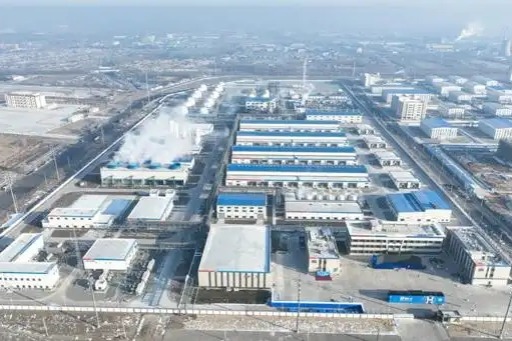South Africa braces for US tariff shock

South Africa should prepare for the impact of hiked US tariffs while diversifying trade to minimize risks, industry stakeholders say.
The United States announced on Monday that it will impose a 30 percent tariff on South African goods, effective Aug 1. In response, Vincent Magwenya, spokesman for President Cyril Ramaphosa, called the rate "not an accurate representation of available trade data".
"South Africa will continue with its diplomatic efforts toward a more balanced and mutually beneficial trade relationship with the United States," he said.
Ramaphosa has urged negotiators and businesses to accelerate efforts to diversify and strengthen resilience in both global supply chains and the national economy.
Alan Mukoki, CEO of the South African Chamber of Commerce and Industry, said the new tariffs will make South African goods more expensive and less competitive in the US market.
The US is using tariffs to build its industry and reduce foreign competition, Mukoki said.
"This is not welcome news — imagine the impact from zero to 30 percent," he said.
Tariff changes should be handled through World Trade Organization frameworks, he said, and countries should be given five to seven years to adapt.
The world is interconnected and the US should not look at its interest only, he said, warning that tariffs could push other nations toward recession.
Donald MacKay, director of XA Global Trade Advisors in Johannesburg, said the outlook remains uncertain as it is not clear what US President Donald Trump wants.
MacKay said the 30 percent tariff will mainly affect agricultural products, but added: "This is not devastating — we will survive. The US accounts for less than 10 percent of (South African) exports and less than that of China or the European Union. We have to diversify our exports and look for other markets, but that takes time."
Sonja Boshoff, chairwoman of the South African Parliamentary Select Committee on Economic Development and Trade, said the impending 30 percent tariff poses a serious threat to strategic sectors, such as citrus, macadamia, and automotive components.
The citrus industry alone supports more than 35,000 jobs and contributes more than $2 billion to the economy annually, she said.
With the African Growth and Opportunity Act — which facilitates duty-free access to the US for African products — set to expire in September and its renewal uncertain, Boshoff said producers face growing challenges because of unpredictable market access.
"It is critical that trade agreements are honored in good faith," she said. "No country can plan its industrial or export strategy under a cloud of sudden and unilateral tariff hikes."
She urged the government to finalize a sustainable trade path with the US and accelerate diversification into new markets.
"We cannot afford diplomatic dithering. Every delay will deepen the uncertainty in our export industries," she said.
The writer is a freelance journalist for China Daily.
Today's Top News
- Experts: Lai not freedom fighter, but a pawn of the West
- Hainan evolves as gateway to global markets
- Opening up a new bridge between China and world
- Tour gives China-Arab strategic trust a boost
- China accelerates push for autonomous driving
- Opening of new gateway can help foster global economic and trade cooperation






























